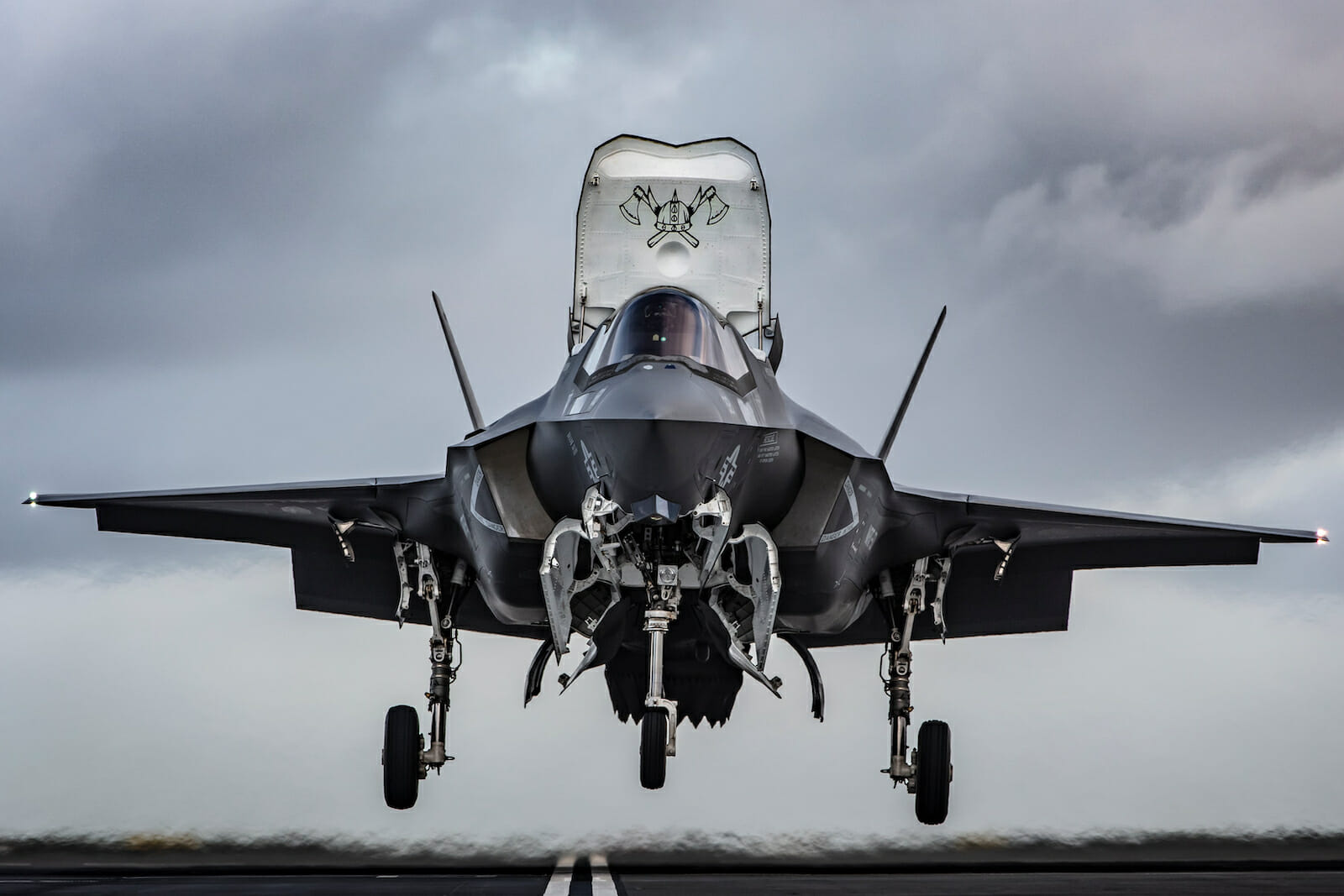
Cut off Cold Turkey: America’s F-35 as a Soft Power Pawn
When the Joint Strike Fighter (JSF) program was first announced years ago, it was meant to bring NATO allies together. A veritable “Kumbaya” circle of nine countries, with leis and hand-holding and Lockheed Martin as the happy-go-lucky middleman. Unfortunately, it didn’t work out that way.
All three iterations of the F-35 have led to ballooning budgets and delayed deadlines. In a Government Accountability Office (GAO) report published this week, the top taxpayer watchdog in the U.S. slammed the JSF program over inaccurate finance reporting by the DoD, the Block 4 updates, and supply-chain vulnerability. The biggest concern flagged by the GAO? Turkey’s removal, after Ankara’s June 2019 purchase of the S400 Russian air defense system.
Now while the GAO didn’t (and shouldn’t) comment on the political sensibility of this decision, it did make it abundantly clear that kicking Turkey out of the JSF club poses a number of headaches for the F-35 supply chain. The program, now made up of 8 allied nations, had to scramble to find replacement suppliers for over 1,000 key components of the flagship fighter jet, a number of which were sole-sourced from Turkish suppliers. And while the GAO was satisfied with most of these, the report cited 15 subcontracts which were of issue.
At the time, the JSF Office had this to say: “Over the last several months we’ve been working to establish alternative sources of supply in the United States to quickly accommodate Turkey’s current contributions to the program. These actions will limit any future production or sustainment impact and we remain on track to meet our commitment of delivering 131 F-35s this year.”
While both the JSF and even the GAO might seem optimistic about the degree to which Turkish-supplied parts can be replaced, consider this: buried in page 30 of the report is a brief reference to the fact that many of these Turkish suppliers will continue to produce parts through 2022. As the GAO states: “Turkish suppliers will provide parts through the end of lot 14 deliveries (scheduled to take place through 2022), in part, to avoid disruptions to aircraft deliveries and additional cost growth from standing up new suppliers.”
That is to say, despite taking the unprecedented step of leveling sanctions against a NATO ally, the United States will essentially continue to rely on goodwill for the next few years. Not to mention, of course, the nearly 50 nuclear bombs housed by the U.S. at the Incirlik Air Base in Turkey, roughly 250 miles from the Syrian border.
In the grand scheme of things, this might contribute to a temporarily icy relationship between Washington and the Erdogan administration–but ultimately, it is unlikely to lead to any long-term degradation in diplomatic dialogue. That’s because, at the end of the day, the relationship between the United States and Turkey is driven primarily by a mutual interest in the MENA region, as opposed to any commonality of culture, religion, or language. Unfair? Perhaps, given the significance of the contribution that the Turkish government (despite all its flaws) and the country’s aerospace industry have made to the program.
What is more concerning for NATO and Western-bloc allies, is that this is indicative of a broader proclivity within Republican factions to wield the F-35 around like some sort of diplomatic bargaining chip. In fact, just this month, policy hawks threatened to pull the pin on both a scheduled rotation of 48 F-35s to the British HMS Elizabeth–citing Prime Minister Boris Johnson’s decision to allow the Chinese firm Huawei to carry out “non-core” duties in the country’s planned 5G rollout.
Much more disturbingly, Donald Trump’s comments this week seem to suggest that his administration could look to double down on isolationist trade policy and scrap the JSF chain in its entirety. If it should come to pass, this would leave key allies like Australia, the UK, and Germany frozen out of lucrative supply-chain deals which have come to form staples of their domestic defense industries.
“I could tell you hundreds of stories of the stupidity that I have seen. As an example, we make a fighter jet,” Trump told Fox News. “It’s a certain fighter jet, I won’t tell you which, but it happens to be the F-35.”
No comment.
“We make parts for this jet all over the world, we make them in Turkey, we make them here, we make them there. The problem is if we have a problem with a country, you can’t make the jet.
“We get parts from all over the place, it’s so crazy. We should make everything in the United States. We’re doing it because I’m changing all those policies.”
Nuanced as ever, the president’s comments belie an ignorance of the degree to which allies rely on these contracts. Speaking from personal experience, I can attest that stripping away JSF contracts from Australian industry would kneecap thousands of jobs and endanger hundreds of millions of dollars that flow largely to SMEs and regional businesses.
“We’ll see what occurs there as it rolls out,” said Australian Prime Minister Scott Morrison in the country’s capital, Canberra.
“I would caution against getting too far ahead of oneself when it comes to reading into the statement that has been made. But we have our contracts and arrangements in place for all those matters, so we’ll continue to pursue them in the normal way.”
Bureaucratic doublespeak that is far more characteristic of high office than Trump, you might (righly) suggest. And while DoD officials have since sought to distance themselves from the Donald, the United States’ willingness to use a key capability of their allies’ respective fleets as nothing more than a bargaining chip is going to damage the country in the long run. The U.S. may find itself struggling to hang on to a position of primacy on the world stage, but this is a sure-fire way to alienate its allies and accelerate its diplomatic decline.

